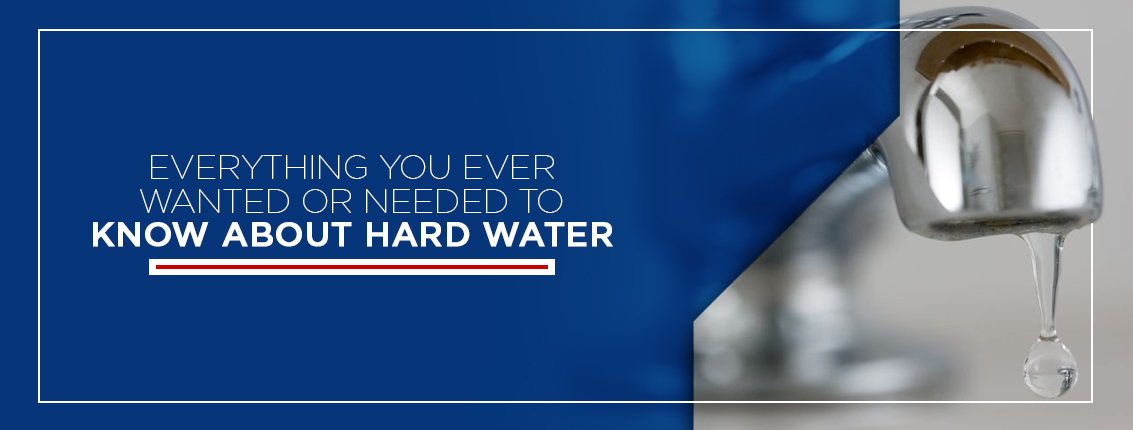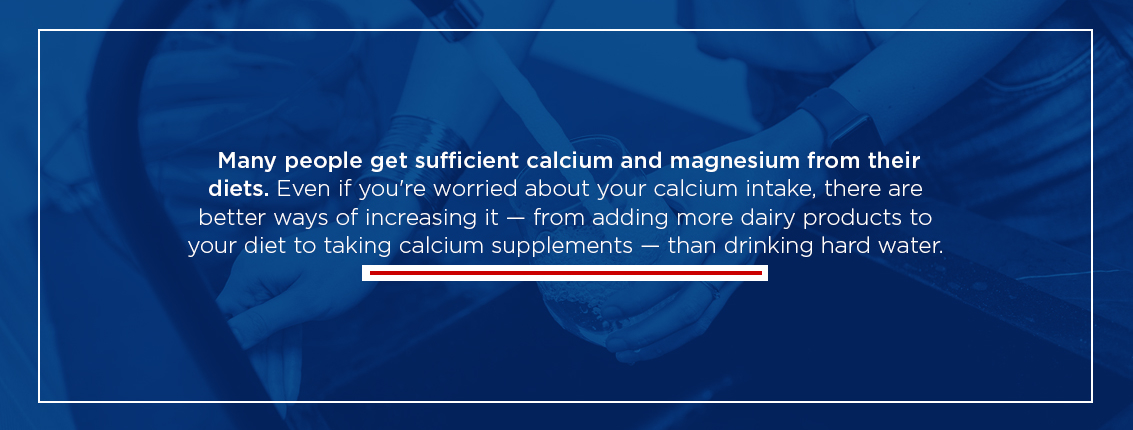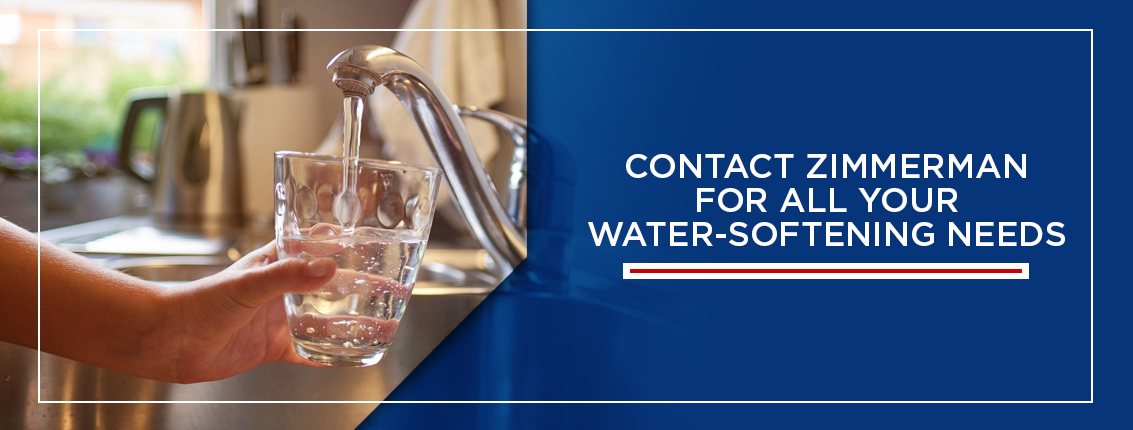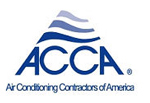What You Need To Know About Hard Water
Maybe your water is looking a little cloudier than usual. Perhaps you’ve started to see a ring around your bathtub at the waterline or a white buildup on your bathroom fixtures. You might be finding it hard to get your dishes clean. Or, your skin and hair have lost their luster.
All these issues are consequences of having hard water in your home. They can be annoying, as with water-spotted dishes, or they can make you feel uncomfortable, as with itchy, irritated skin. Left untreated, hard water can also cause costly damage to your pipes and appliances.
Fortunately, you can remove hardness from your home’s water, and we’re here to tell you how. Read on to learn more about what hard water is, how it affects your body, clothes, housewares and appliances, and how to get rid of hard water in your home.
What Is Hard Water?
Hard water is water that contains high concentrations of the minerals calcium and magnesium. When dissolved calcium and magnesium build up in water, they lead to several undesirable effects. The minerals in hard water can build up in a film on the skin and cause skin irritation. They can also cause residue to accumulate in your hair and give your hair a greasy feeling, as if you haven’t entirely washed all the shampoo out of it. Hard water can also make hair dull and limp, rather than full and shiny.
Hard water has effects on areas of the home as well. If you wash your dishes in hard water, you may see white spots on the silverware, glassware and pots and pans, even if you know they are clean. Hard water can also cause residues to build up on clothes in the machine and make it harder to get clothes clean.
What Are the Causes of Hard Water?
Hard water results from high concentrations of calcium and magnesium. These minerals can infiltrate your home’s water in a couple of different ways.
- Calcium deposits: In nature, calcium can enter water as the water comes into contact with limestone formations. Limestone contains calcium, so when water flows over or through the limestone, calcium deposits collect in the water.
- Magnesium deposits: Dolomite and some other types of rock formation contain high quantities of magnesium. So when water flows over these rock formations, it picks up magnesium as it travels.
Groundwater often comes into contact with these minerals for longer periods than surface water. For this reason, groundwater is often harder than surface water, so if you have water that comes from a groundwater aquifer— as 30% of Pennsylvania’s domestic users do and 74% of its agricultural users do – it is often hard.
Though calcium and magnesium are the two main culprits in water hardness, several other minerals can occur along with these two and contribute to hardness as well. Aluminum, barium, iron, manganese, strontium and zinc can also cause hardness, though they usually occur in such small amounts that their effect on household water hardness is negligible.
Is Hard Water Safe to Drink?
Though hard water often has a cloudy appearance, it is generally safe to drink. The Healthline reports that hard water may have positive health benefits, improving calcium and magnesium intake in populations where the consumption of these minerals is minimal.
However, even though hard water is safe and even slightly beneficial to drink, the net benefits of having soft water in your home vastly outweigh the minimal health benefits of hard water. Many people get sufficient calcium and magnesium from their diets. Even if you’re worried about your calcium intake, there are better ways of increasing it — from adding more dairy products to your diet to taking calcium supplements — than drinking hard water. For most people, hard water’s detrimental effects on their hair, skin and the home environment outweigh the minuscule increase in calcium and magnesium intake.
How Does Hard Water Affect Pipes and Appliances?
Hard water affects pipes and appliances in a few different ways.
- Limescale buildup: The high mineral content of hard water leads to limescale buildup on pipes and appliances. Scale buildup generally appears as a hard, whitish crust in your pipes or on appliance fixtures, or even inside your coffeemaker. Hard water buildup looks unsightly, but it also impedes the flow of water through the pipes. Just as plaque buildup inside an artery restricts blood flow, a pipe full of limescale deposits limits the movement of water.
- Decreased water pressure: The limescale deposits that form as a result of hard water often lead to reduced water pressure in your home. When you turn on your faucet, you may get only a dribble, and when you take a shower, the spray may be weak.
- Diminished efficiency of appliances: Hard water also decreases the efficacy of your soap and detergents. If your home’s water is hard, your hand soap, dish detergent and laundry detergent may not form as many suds as they otherwise would. This lack of foaming action can make it much harder to get your household items clean, and you may have to use larger quantities of detergent than you otherwise would.
- Reduced lifespan: Buildup in your home’s appliances also causes them to wear out sooner. If your home has hard water, you may find you have to replace your water heater or washing machine more frequently.
How Can You Get Rid of Hard Water?
Since calcium and magnesium in water are not harmful to human health, municipal water treatment facilities generally do not filter them out. Fortunately, solutions exist to help you get rid of the hard water in your home.
Install a water conditioning or filtration system — specifically, a water softener. This device helps remove many of the calcium and magnesium particles in your water.
Getting rid of your hard water by installing a water softener provides many benefits for your home.
- Cleaner-looking and softer-feeling clothes: Because of its effects on your washing machine and the buildup in causes on clothes, hard water can leave your clothes looking dull or faded and feeling hard or scratchy against your skin. Softer water will help your clothes feel softer and look bright and clean.
- Lustrous and healthy hair and skin: With soft water, your hair will be softer and shinier, and your skin will feel cleaner and healthier.
- Shinier, sparklier housewares: When you wash your dishes, they’ll come out of the dishwasher or drying rack looking sparkling clean, not covered in unsightly spots. Your bathroom fixtures will also look brighter and cleaner, with no rings or scaly deposits.
- Reduced maintenance and replacement costs: Because soft water does not cause heavy limescale deposits, switching to soft water means you’ll have to do less maintenance on your plumbing and have to buy replacement appliances less frequently.
- More efficient cleaning: In washing your hands, your dishes or your laundry, you’ll be able to use less soap and do less work to get everything fresh and clean.
Contact Zimmerman for All Your Water-Softening Needs
To start seeing the beneficial effects of soft water in your home, call Zimmerman for a water-softening system. Our quality softeners are effective and reliable, and our friendly experts can answer your questions and have your new system installed in a flash. If you’re wondering about other impurities in your tap water, we can perform a water quality test as well, and customize a home filtration system based on your results.
We have won Harrisburg Magazine’s annual Simply Best award in the category of plumbing and HVAC for over a decade and counting, and we’ll bring your home the same quality and dependability we’ve built our reputation on for over 40 years.
Contact us today to learn more.












